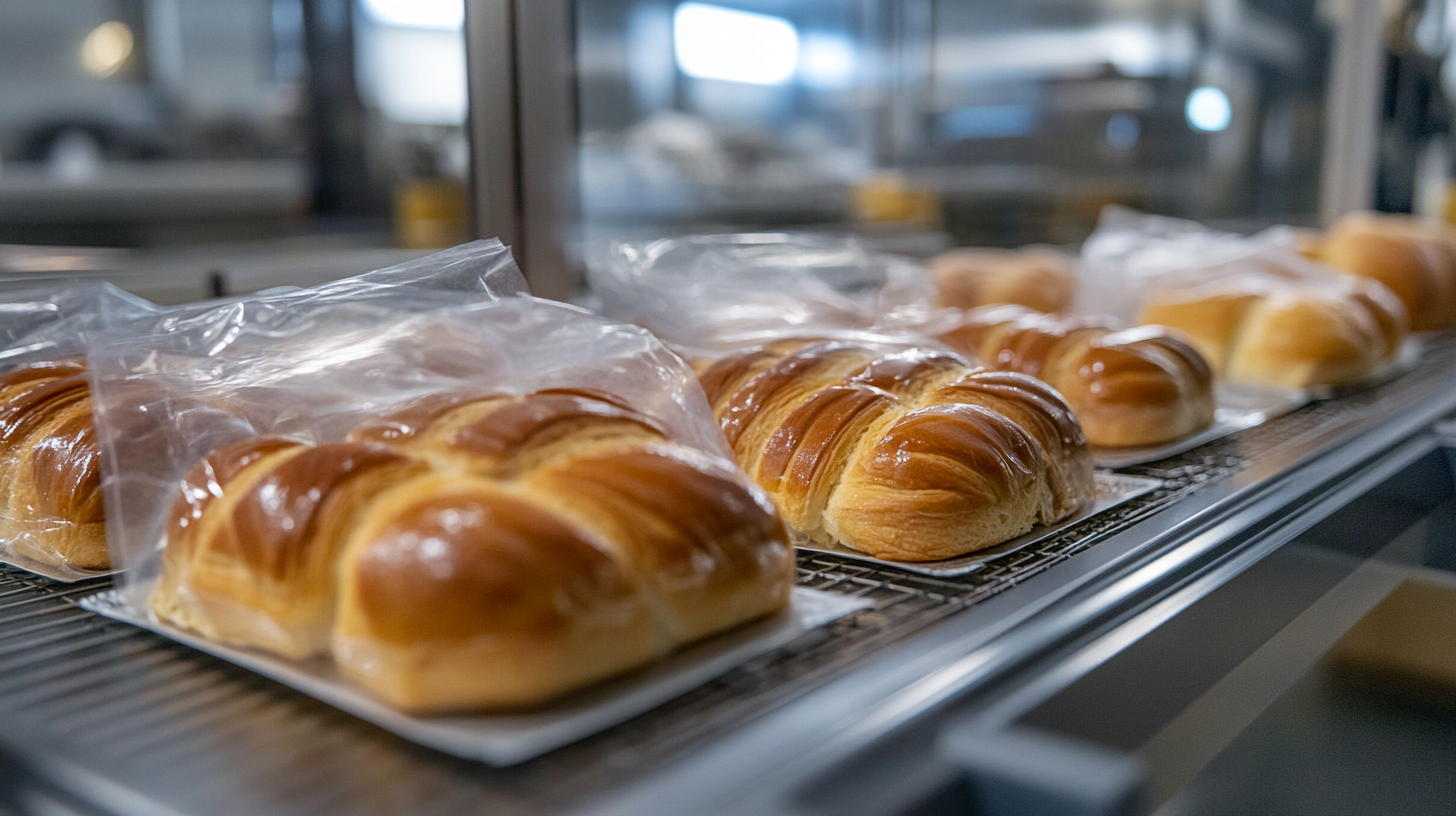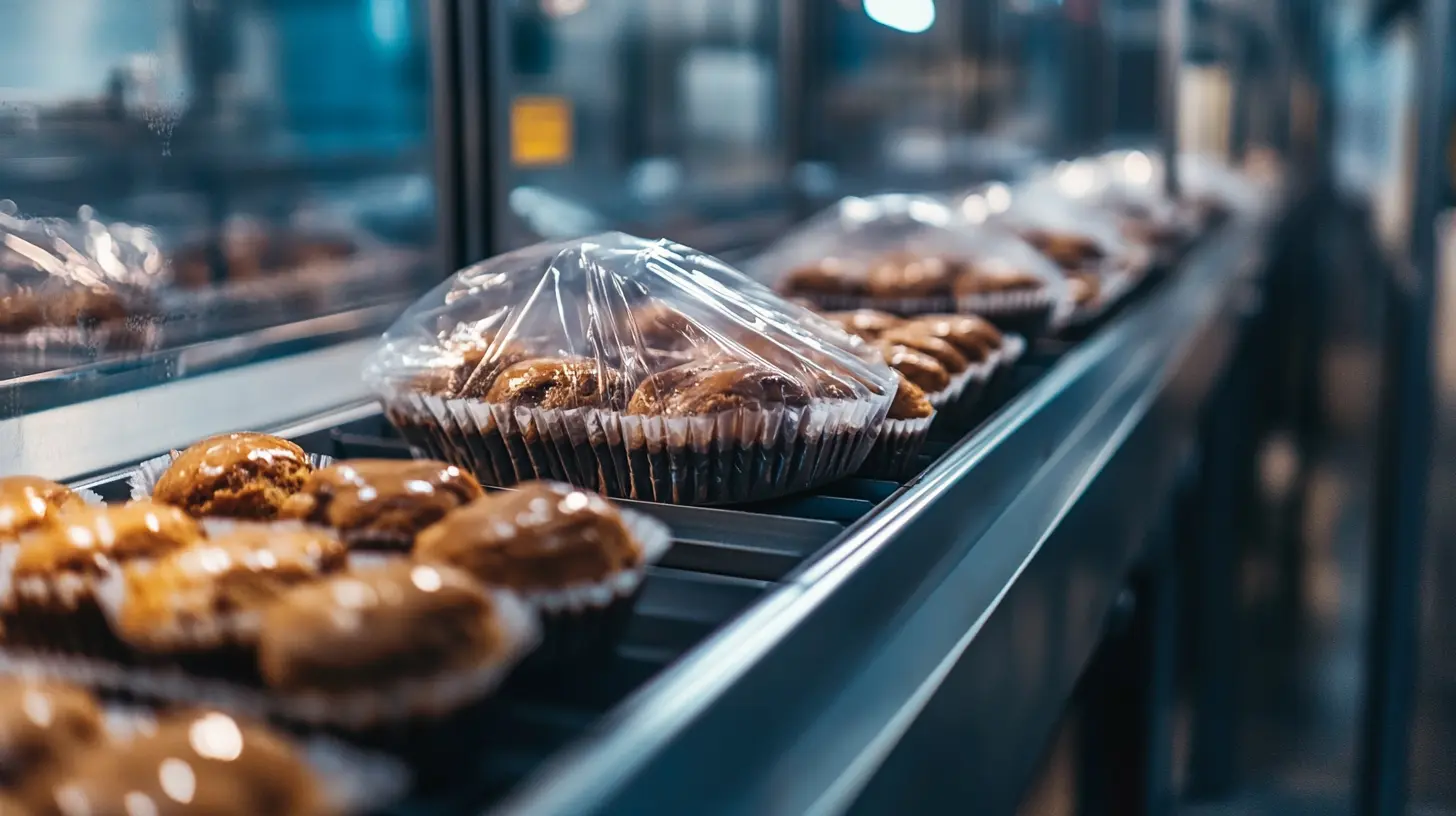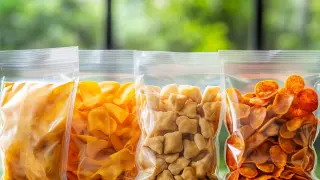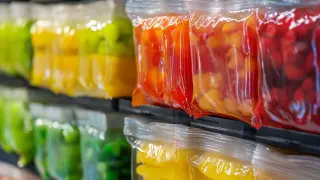The global pastry packaging market has been experiencing steady growth in the last few years, primarily due to the increasing demand for ready-to-eat and convenient food items. According to a recent report by ResearchAndMarkets, the global packaging market for the bakery segment is expected to reach USD 22 billion by 2026, growing with a CAGR of 4.5%. Such growth can be attributed to the increasing consumption of artisanal and gourmet pastries accompanied by an increased focus on sustainable and innovative packaging solutions. Therefore, it is becoming very important for manufacturers and exporters to tread carefully through the complexities of the import-export certifications and compliance standards to build a competitive advantage.
At Hubei Jinde Packaging Co., Ltd., we hold quality and client satisfaction first and foremost in the pastry packaging world. This continuous commitment to research, development, production, and service has helped us grow into a leader in the integrated lean packaging solutions market, specific to the bakery industry. With appropriate certification and best practices in place, these standards can help businesses enhance their operation efficiency while also delivering safe and delicious pastries to consumers worldwide. This guide is intended to elucidate key strategies in facilitating the import-export ecosystem shaping the pastry packaging sector.

Import-export certifications for pastry packaging are so important globally due to their provision for product safety and quality. Food safety issues have changed with time, and the new subjects of concern are the problems and contradictions that people encounter with imported food products. For example, cakes exported from Israel to Turkey are rumored to be unhealthy, perhaps enhancing the call for such certification. Real certification becomes a soothing assurance to the consumer in terms of food item integrity and safety, thus inspiring confidence in international trade. On the other hand, the world is changing. The halal segment, among others, is fast-growing in the world. Initiatives like HSPP (Halal Local Champion - Procurement Partner Program) help the local halal players adjust into the foreign marketplace. Proper certifications become relevant from such programs when it comes to judging standards across geography and culture that a product meets when penetrating world's market. The careful attention to those certifications provides the best shot for companies to break into pastry packaging while addressing safety and regulatory requirements.

When entering the global pastry market, it is imperative to know the key certifications of pastry products for compliance and success. Different countries have specific regulations governing food imports, whereas certifications ensure the local health, safety, and quality standards are met by the products. For example, the FDA in the US imposes stringent labeling and hygiene requirements upon all food products, including pastries. Importers need to be aware of these, lest they incur misfortunes in terms of not-so-pleasant delays or outright rejection.
Another crucial certification comes in the form of the European Union's Health Mark, which states that pastries are safe for consumption and produced under hygienic conditions. Apart from gaining consumer confidence, this certification is sometimes required before a product can be placed on store shelves across Europe. Therefore, producers need to spend time and money understanding the certification process, which may include an eventual inspection or audit of their facilities. By going through the effort of securing the certifications, companies may get the chance to market their products better and more easily enter new arenas.
Consumer interest in such sustainability labels as Fair Trade and Organic is growing now. These indicate their commitment to ethical sourcing and environmentally friendly practices in response to the rising demand for responsible consumption. As pastry products target a healthier consumer and more ethically motivated segment, these extra certifications will allow brands to gain a competitive edge. Following best practices in obtaining and maintaining the same will always ease international trade and contribute to consumer confidence.

While sailing through complex waters of international pastry packaging regulations is difficult, sticking to best practices is certainly necessary for a successful import-export exercise. Above all, the first premise while dealing with international export is to know enough about the regulations set forth in the target market. Each country has its own specifications regarding food safety, labeling, and packaging materials. Becoming familiarized with local rules not only brings your business with the law but even increases the acceptability of your products among the potential consumers who prefer quality and safety.
Another very valid point to consider is sustainable packaging. With the increasing levels of emphasis in environmental responsibilities, having biodegradable or recyclable materials might greatly improve the reputation of your brand. Well, it is a fact that many consumers presently would pledge their votes for the companies, which showed seriousness in environmental concerns. Therefore, implementing great sustainable practices in its packaging strategy is more good for the planet but also a great business move which will later yield benefits in sales as well as in customer loyalty.
Last but not least, experienced logistics partner firms would boost your course towards making things easier, not more difficult, in terms of customs and documentation. They help you in knowing the ins and outs of how import licenses, tariffs, and other requirements differ in every nation. Fortunately, fulfilling your documentation thoroughly and by means of proper channels, you can incredibly reduce the chances of delays or costs incurred in shipping and allow a smooth entry into the new market.

With nuances coming into play, understanding what exactly is required for import-export documentation is a necessity for the global pastry packaging industry. Documents ensure the movement of goods across borders while adhering to local and international laws. Supply chain documentation really begins with an understanding of the different types of certifications required. Depending on the country where the consignment is destined for, health certificates, quality assurances, and origin documents confirming the safety and authenticity of the product may be required.
Moreover, maintaining thorough records of the entire supply chain is very important. This includes the invoices, packing lists, and export declarations that give fine detail about the shipments. These documents act as reference materials during customs checks and can directly influence the effectiveness of the functioning of the import-export. Any miscellaneous records or lack of documentation can cause delays, additional charges, and even legal cases.
Logistics and compliance professionals are the backbone for navigating these requirements. Clear documentation protocol in your organization will help organize personnel and reduce the risk of mistakes. By placing greater emphasis on accuracy and thoroughness of documentation, businesses can gain a competitive edge in the global arena, ensuring that their wonderful pastries reach their customers in a seamless manner.
The confectionery enterprise is generally confronted with a whole range of challenges that directly affect its operation and profitability when it comes to the import and export of pastry packaging. One major hindrance is international regulatory compliance. Each country comes with a different requirement for food safety, packaging, and even labeling, which ends up causing prolonged or even entirely delayed customs clearance. Therefore, companies must stay abreast of any updates regarding these regulations and be compliant with them in order to avoid hard-to-bear penalties.
Further challenges encompass ensuring the pastries' integrity during shipment. Fragile baked products need packaging solutions capable of preventing physical damage to the product while simultaneously keeping it fresh. This means companies invest in strong-quality packaging able to withstand the various environmental conditions, such as temperature and humidity, that the product must endure for the utmost integrity. This includes choosing the right material and following the best practices in handling and transportation to reduce risks.
Language barriers and cultural discrepancies may further complicate communications among export and import partners. Overlaps in understanding specifications or delivery timelines may lead to misunderstandings that might culminate in disputes and subsequent losses. Having clarity in communication and employing intermediaries well-versed with local markets could help in smoothing the way for successful international collaboration. By tackling these issues from the outset, a company can sail fairly smoothly throughout the whole sphere of international pastry packaging.
The industry of pastry and confectionery is going through groundbreaking changes with respect to sustainable packaging. The bakers realize that there is greater awareness of the environment and regulatory pressure, which is enough impetus for them to start exploring eco-friendly options in packaging. This is in answer to consumer demand for doing things in an ecologically compliant manner, but also, it is possibly a window of opportunity for innovative avenues in the whole sector. Current scenario, of course, makes sustainable packaging focus with bakers researching materials that are less impacting on Earth relatively yet guard the integrity of their products.
As per the trends, in the near future, this industry is likely to observe massive growth. It would not be surprising if the industry would reach huge heights in the following years. According to research, the global sustainable packaging market is likely to touch as high as $272.93 billion by the year 2030, thereby being witnessed at an annual growth rate of 7.6%. The rising popularity of products packaged in eco-friendly forms-from biodegradable plastics to recyclable paperboards-motivates the surge in the sales demand. Most bakeries are now giving attention to these sustainable alternatives, which boosts their brand and adds value to broader corporate social responsibility.
Especially in the cake box segment of the market, the activity is excellent because of the growing demand for premium packaging and customized designed packaging. As consumers want personalizations much more, there will be a need for high-quality materials, promising higher commitments toward sustainability. Such innovations will attract purchasers, and bakeries will have to survive in a competing marketplace that values such innovative stewardship of the environment.
In the last few years food safety compliance has become a serious subject pertaining to international import-export markets more so with the various pastry and beverage industries. The latest ruling by the Court on misleading labeling of imported red wine emphasizes the need for proper product information under local as well as international food safety standards. According to the Food Safety Law, packaged food must display Chinese labels bearing important data such as the information of the country of origin and that of domestic agents. Breaches of these requirements attract serious penalties and liability to compensation claims against sellers who mislead consumers.
Besides all the legal requirements, food safety regulations are meant to assure consumer trust. China has issued a total of 1,660 food safety standards, covering more than 340 daily used products. This dense framework ensures that products conform not only with local intentions but with international standards as well. The newest laws regarding those regulations are regulating terms like "zero additives" used on food packages, and this has shown a huge leap toward accurate labeling with regard to transparency. This tagging will help ensure consumer protection and can very well be contributed to a cleaning up of the market by empowering consumers to complain against low-standards products.
As the industries adapt to changing food safety standards, clear labeling and transparency cannot be overemphasized. For businesses, it will be necessary to engage themselves in developing a full knowledge of regulations, both domestically and internationally, to penetrate their markets and remain compliant. Organizations will have to heavily invest in training and infrastructure that would monitor that products are up to standard as this will eventually mean consumer confidence and a sustainable business model. Over and above that, continuous monitoring and adherence to food safety protocols will be at the core of the increasingly global market.
Partnering with worldwide suppliers and distributors in the pastry packaging industry is no easy task because you have to strategize to deal with the intricacies of international trade. Begin your endeavor for partnerships with potential partners who have made their mark in the pastry packaging industry. Make sure you choose suppliers who meet your product quality requirements, yet impart value to your company's philosophy and objectives. A friendship forged on trust and transparency will go a long way in forming partnerships that are long-lasting and mutually beneficial.
Effective communication is important. Opening up a line of communication with suppliers and distributors is paramount. Discuss your packaging requirements with them, from your design specification to your requirements on materials and compliance with certification requirements. This way, all parties have a shared understanding of expectations, which minimizes miscommunication and fosters collaboration. Wherever geographical distances may hinder effective communication, virtual meetings can become a tool for real-time discussions and adjustments where necessary.
Also, technological means can help in enhancing the partnership experience. Online tools and supply chain management platforms are indeed helpful in facilitating operations and productive communication. They provide visibility into the status of current orders and inventory levels, as well as help mitigating risks related to delays or compliance. By implementing these strategies, your company is set to create strong partnerships that will drive mutual success in a highly competitive global packaging marketplace.
Import-export certifications are crucial for ensuring product safety and quality, fostering consumer trust, and helping businesses comply with international regulations.
Certifications serve as a guarantee for consumers regarding the integrity and safety of food items, alleviating concerns about harmful substances in imported products.
Key certifications include the FDA requirements in the United States, the European Union's Health Mark, and various sustainability labels like Fair Trade and Organic.
Certifications boost consumer confidence and are often prerequisites for entering retail spaces, thereby facilitating smoother market entry for pastry producers.
Essential documentation includes health certificates, quality assurances, origin documents, invoices, packing lists, and export declarations.
Businesses should collaborate with logistics and compliance professionals and establish clear protocols for maintaining meticulous records of their supply chain.
Improper documentation can lead to delays, additional costs, and legal challenges, significantly impacting the efficiency of the import-export process.
There is a growing demand for ethical and sustainable consumption, leading to increased importance of certifications like Fair Trade and Organic among consumers.
By securing necessary certifications, businesses can enhance marketability, ensure compliance, and unlock opportunities in new regions, promoting successful international trade.
Businesses should prioritize accurate and comprehensive documentation, alongside acquiring necessary certifications, to streamline operations and ensure efficient import-export processes.






 中国
中国